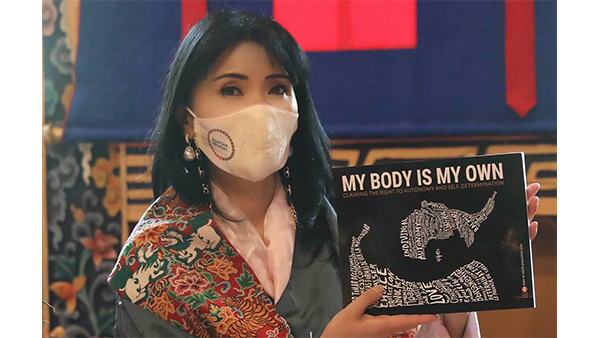 Globally, nearly half of women are denied their bodily autonomy as per the world population report 2021. Bodily autonomy is the power to make choices about one’s body without fear of violence or having someone decide. Her Majesty the Queen Mother Sangay Choden Wangchuck, the goodwill ambassador to United Nations Population Fund (UNFPA) launched the report recently.
Globally, nearly half of women are denied their bodily autonomy as per the world population report 2021. Bodily autonomy is the power to make choices about one’s body without fear of violence or having someone decide. Her Majesty the Queen Mother Sangay Choden Wangchuck, the goodwill ambassador to United Nations Population Fund (UNFPA) launched the report recently.
Denial of bodily autonomy includes rape, forced sterilisation, virginity testing and female genital mutilation among others.
“It shows that in countries where we have data, nearly half of women, lack the power to make their own decisions over health care, contraception and sexuality. In essence, hundreds of millions of women and girls do not own their bodies. Their lives are governed by others,” said Yeshey Dorji, the Special Adviser to UNFPA Country Director.
He said the COVID-19 pandemic has further worsened the situation resulting in increased sexual violence, more unintended pregnancies and new barriers to health care.
As per the report, only 55 per cent of the women are fully empowered to make choices over health care, contraception and the ability to say yes or no to sex. Only 71 per cent of the countries guarantee access to overall maternity care and 75 per cent of the countries legally ensure full and equal access to contraception. The report states only 80 per cent of the countries have laws supporting sexual health and well being.
According to the report, lack of bodily autonomy has a huge impact on the individual as well as the country and its economy.
“A woman who has control over her body is more likely to have power in other spheres of her life. She gains not only in terms of autonomy but also through advances in health and education, income and safety. She will thrive, and so will her family. Communities and societies as a whole will flourish when all people have the power to make their own informed decisions about their bodies and futures,” he added.
And according to officials of the Respect, Educate, Nurture, and Empower Women (RENEW), Bhutan is not new to denial of bodily autonomy cases. The officials said some common cases are unwanted and teenage pregnancy, physical and emotional abuse and rape.
“We have lots of issues that we are facing but not as much as other countries are facing. Moreover, we are yet to know more about the issues. Many do not report the cases and there are many reasons behind that. One could be due to stigmatization, family pressure and financial dependence on the partner,” said Tashi Wangmo, a Counsellor with RENEW.
A survivor, who chose to be anonymous, told BBS how misunderstood belief impeded harmony in a family. “Initially, there is so much of love. Later we fight and even raise hands. If the wife dresses well and goes out, the husband would question a lot. He would accuse us of this and that. Although he has not been treating me well, I could not leave him thinking our child would suffer. We, women, are very weak and have to worry about what our husband would tell us. We also have to worry and fear about what his family would say about us,” she said.
“My husband does not work. I have to work and look after my child. Since I work as a sweeper, my friends and family discriminate against me. My husband would get drunk every time and beat me and my child. Last time I could not take it anymore and asked him to leave the house, but he nearly killed me,” said another.
As per RENEW, not being able to report to relevant agencies due to these reasons also come under the denial of bodily autonomy
Meanwhile, only 80 per cent of the countries have laws supporting sexual health and well being.
Kinley Dem












